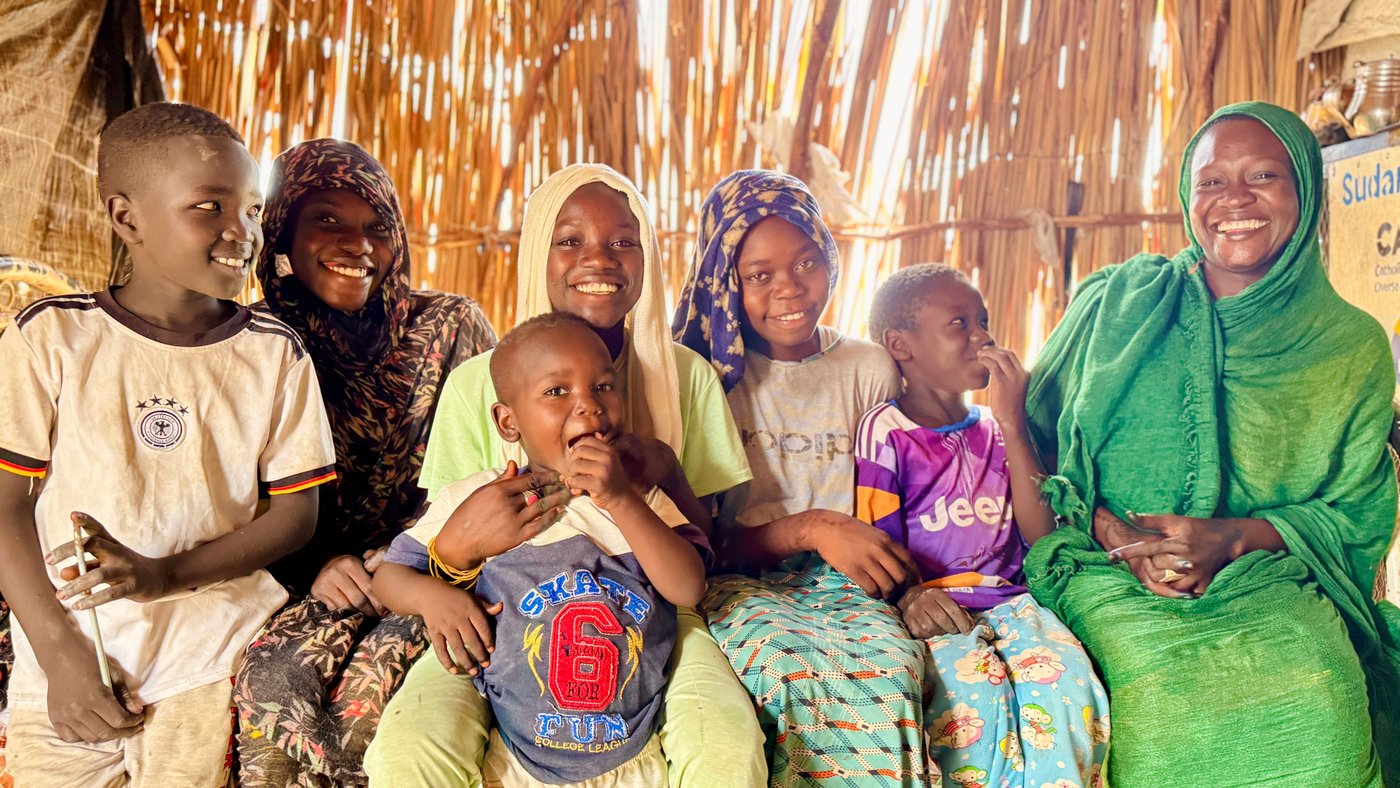The stolen lifeline: A water pump and a lost income
When fighting erupted, Um Mohammad and her family fled their home in the dead of night. Shelling was loud and sudden, and people were terrified. The family marched in the dark, carrying only few belongings. Dust coated their clothes and hair. On the road, Um Mohammad's youngest son was injured. A thorn pierced his eye, and he needed two operations to save his sight. They walked and walked until they reached Karshom, and then later reached Kosti. With every step, they drifted further from home.
Before the war, the family had a small farm fitted with an irrigation pump. That pump was their lifeline. It watered the fields and helped them grow produce to eat and sell. One morning, soldiers showed up at the farm. “They took our irrigation pump,” Um Mohammad remembers.
Um Mohammad is no stranger to loss. Her mother died when she was young, and her grandmother, who she calls Haboubi (an Arabic term of endearment), raised nine children with little money. Haboubi cared for Um Mohammad like a parent. When the fighting began, Haboubi suffered the most. She stayed with Um Mohammad for a while but later went to Al-Obeid for health reasons. Um Mohammad misses her voice and the comfort she offered.
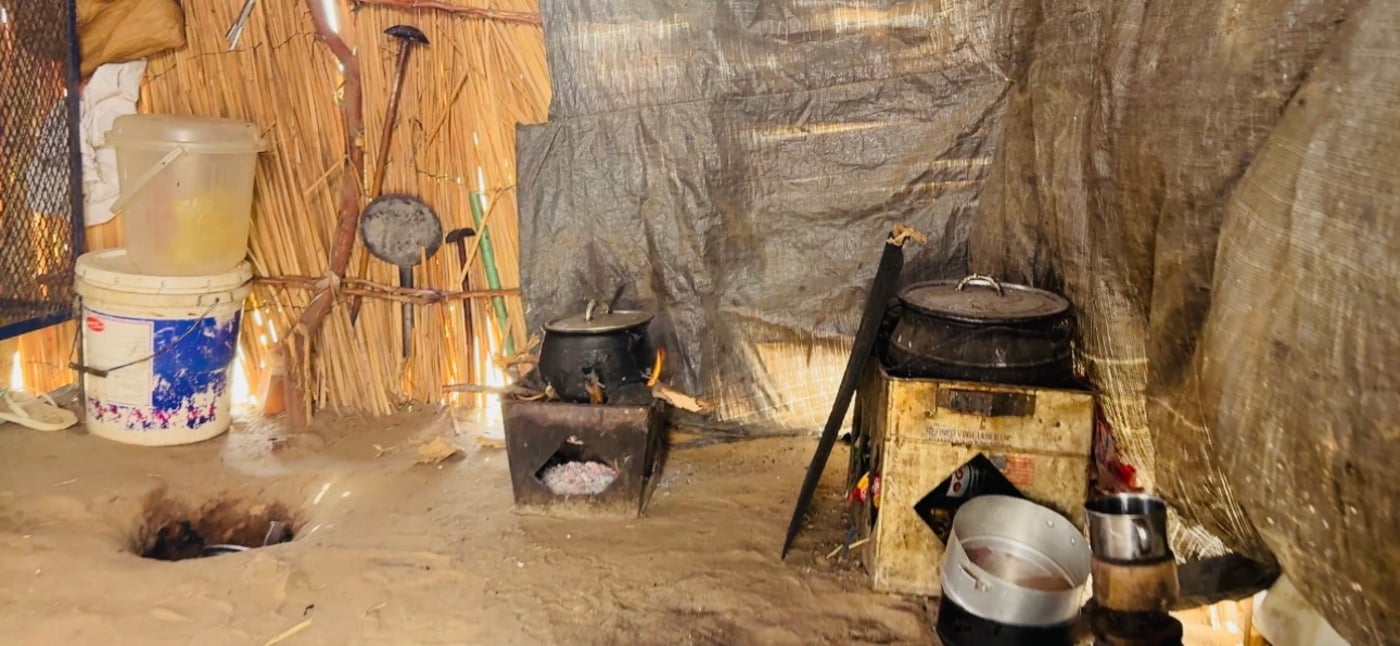
Hunger, sickness, and small mercies
Arriving in the camp was a shock, and the first few days were the worst. Food was scarce. “At first the situation here was bad,” says Um Mohammad. “There was so much hunger.”
Some days the family had nothing to eat, and when little food was available, it had to be shared. Um Mohammad was pregnant when they arrived. Her blood count was low, and she felt weak and anxious. A lack of food and medical care led her to miscarry her child.
Illness followed hunger in the camp, and the clinic was full. People waited many hours to see a nurse or a doctor, and available treatment could not cover everyone’s needs. For her son’s eye, Um Mohammad needed to travel to a hospital 30 minutes away. Most days she had no money for transport and so she walked to the hospital instead. Even as rain poured, she walked.
The doctor who treated her son was kind. He stopped charging fees when he learned of their situation. He brought sweets for the boy and once invited Um Mohammad to eat with him.
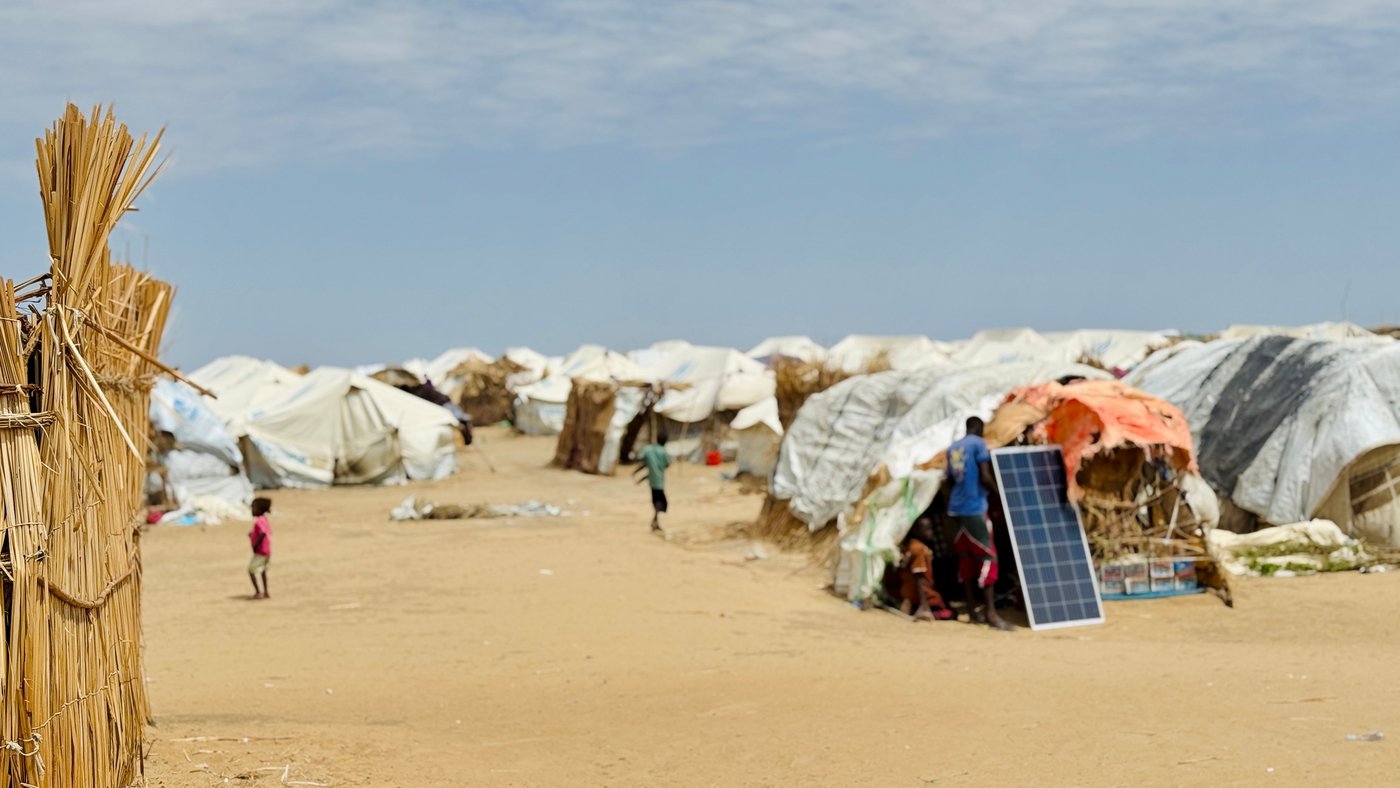
Stuck between a rock and a hard place
Life in the camp was full of difficult choices. Soap, pots for cooking, blankets, and warm clothes were not always available. Water was a daily struggle. Families queued at the water reservoir and carried jerrycans back to their tents.
Sometimes, a family would be forced to sell some of the jerrycans they collect for a meagre amount of money.
“We take water from the tank and carry it in jerrycans, which we sometimes sell when we have no money,” explains Um Mohammad, caught choosing between food and water.
Um Mohammad's husband travelled often to find work and was gone for long periods of time. Um Hani had to make all the daily decisions. They sold almost everything they had to reach safety. “I sold all my gold,” she says. “We reached Kosti with nothing.” Gold to the family represented not only jewellery, but it was also a safety net for times of difficulty. Selling it meant selling part of their sense of security.
To survive, Um Mohammad would borrow money from neighbours and moneylenders. In moments of sheer desperation, she resorted to selling aid items. Aid organisations distributed tarpaulins to cover tents, and when her children grew hungry, Um Mohammad sold some of those plastic sheets to buy food. It was a painful choice, trading shelter for a meal, but she was forced to prioritise her children’s lives.
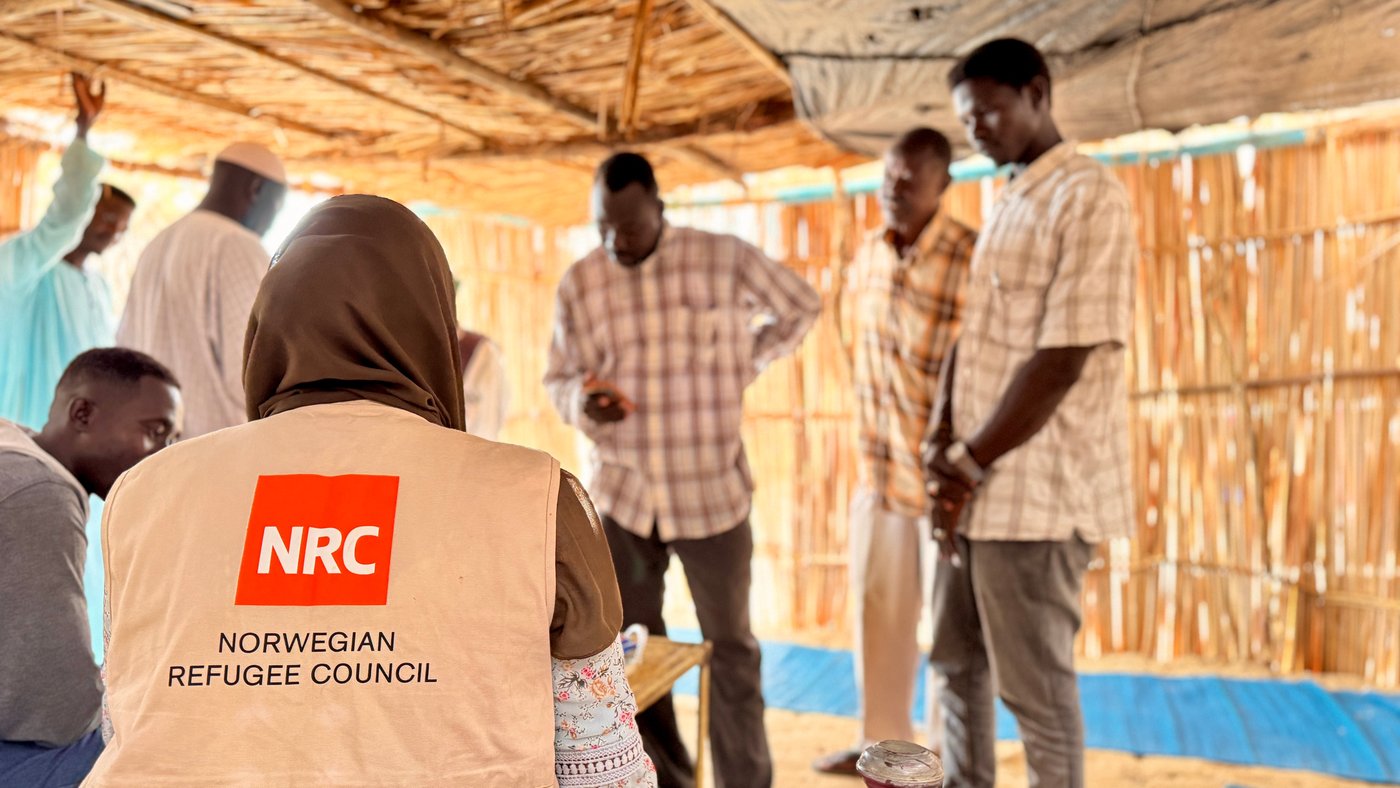
Protection assistance and a semblance of hope
Through the Norwegian Refugee Council’s individual protection assistance (IPA), Um Mohammad's family began to receive small but flexible sums of cash support. The assistance gave her options, and she used it wisely. She paid off small debts so no one would come knocking on her door demanding money while her children slept. She also bought soap and simple cooking pots.
With part of the support, Um Mohammad even opened a small shop selling handmade items made by women in the camp. It’s a growing business and does not bring much income, but it is hers. It gives her a reason to wake up every morning and hope for a better tomorrow.
NRC’s assistance allowed Um Mohammad to care for her son after his eye surgery. She was able to take him to the clinic, buy the needed eye drops, and cover part of the medicine and transport costs. When heavy rains destroyed their old tarpaulin, she used the support to buy a new one as well.
Camp life is not only marked by hunger and sickness – there are small joys too. Children laugh while playing with broken toys. A neighbour brings tea and bread to share. Um Hani holds on to these moments, which give her strength and remind her she is not alone.
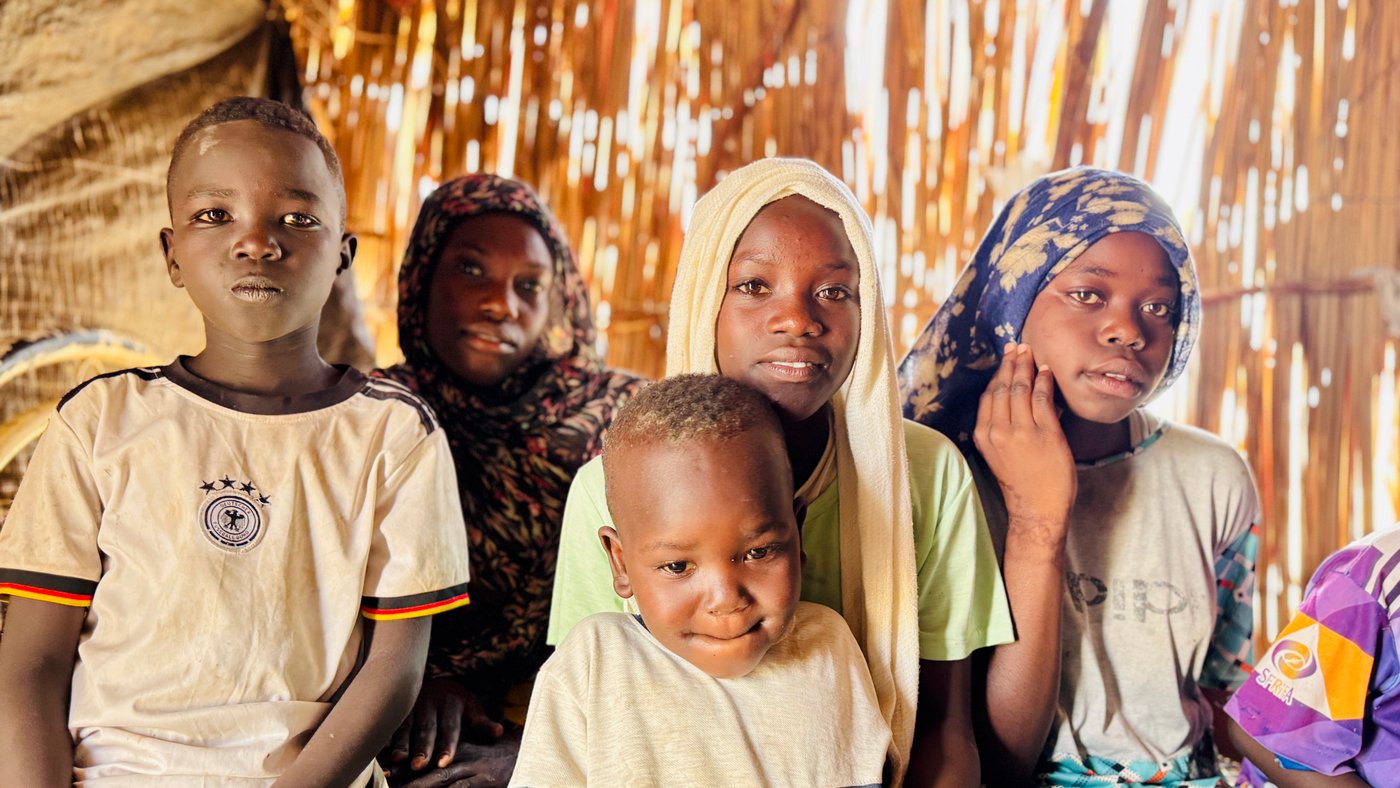
Home, but when?
“After this ends, we will return,” she says. The word “when” carries both hope and fear. They want to go back, but the road is not safe. There are robbers on highways. Even if the fighting stops, thieves and danger on the road keep people in camps.
If Um Mohammad could ask for one thing, it would be steady care for her children – regular treatment for her son’s eyes, safe water, soap, cooking pots, and clothes. She wishes for decent work, seeds to plant, and a home to return to.
Um Mohammad and her children wait for the day they will return home and plant again. Until then, they cling to the small things that keep them human.
*Name changed to protect identity.
Sign up to our newsletter to read more stories from around the world.


